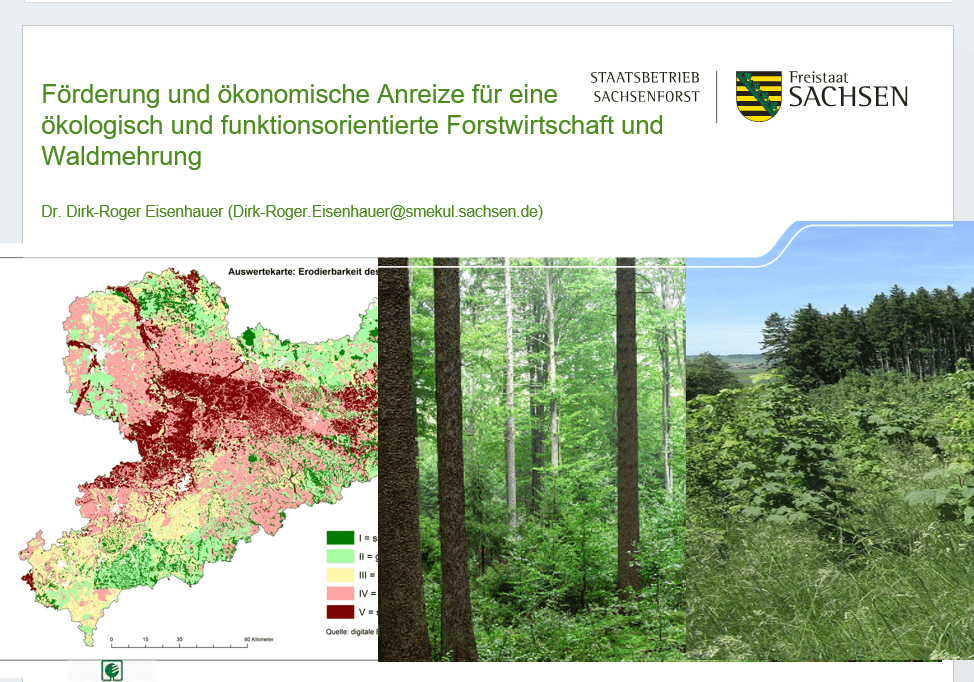Based on request of the State Forest Resources Agency of Ukraine 18.07.2024 the SFI-Project organised a round table of forest policy experts to discuss the draft law “On attracting investment and economic incentives for afforestation and forest management planning measures”, namely to explore the reasoning as well as the efficiency of this planned legal regulations in light of the European integration process. The draft law was developed in the framework of a Presidential decree №228 from 07/06/2021 as well as the Action Plan of the Government of Ukraine for 2023 and to date, after receiving comments from the ministries and departments concerned, is being finalised by the State Forest Resources Agency of Ukraine. In light of the tense budget situation and shortages in framework conditions the interest in further development of the current draft law seems limited; only about 15 representatives of forestry administration and forest science participated in the round table.
Oleh Storchous, SFI-Project forestry law expert and lawyer, presented the “Status quo of economic incentives for forestry in Ukraine – needs and options for improvement”. He drew attention to some key challenges in the development of forestry, particularly the lack of state financing for measures beyond normal forestry (e.g. afforestation and provision of social and ecological services) as well as an excessive bureaucracy. Storchous then described the fives types of economic incentives proposed by the draft law. He concluded that Ukraine lacks in a comprehensive, effective legislative support for economic incentives for afforestation, especially for private landowners. “Only a comprehensive and systematic approach to legal regulation of economic incentives, combined with a reliable financial mechanisms will ensure significant development of afforestation at the national level.”
During the discussion representatives of a World Bank project related to carbon pricing and trade in Ukraine expressed their interests in the current discussion around financial means for forest development in light of positive impacts of forest expansions on the CO2 -cycle.
Afterwards Dirk-Roger Eisenhauer, SFI-Expert, Head of the Competency Centre for forest and forestry in the Free State Saxony, Germany, talked about “Promotion and economic incentives for ecologically and functionally oriented forestry measures and afforestation”. He underlined the importance of a concrete forest policy strategy as a base for any forest development measure, most important sufficient state financing. Eisenhauer discussed in his presentation advantages and disadvantages of the trade with carbon certificates versus a CO2 – tax, as this exists in German. While the positive impact on the environment seems obvious by using a CO2 – tax, the framework conditions for carbon certificate trade is not yet sufficiently installed. Participation in carbon trade schemes requires significant admin efforts, which can be provided only by bigger forest owners. With regard to voluntary carbon certification trade Eisenhauer again referred to the needs in sufficiently consolidated framework conditions.
In view of the ambitious afforestation plans, summarises Volker Sasse, SFI-Project leader, that low budget approaches, such as natural succession might be a suitable alternative, provided that sufficient regulations for the change of land use are legally implemented.
During the discussion, Vitaly Storozhuk, SFI National Project Coordinator, draw attention to the need in a fundamental strategic planning as an important prerequisite for any forest development plans, particularly for a comprehensive afforestation program.
Presentation Status quo of economic incentives for forestry in Ukraine – needs and options for improvement
Presentation Förderung und ökonomische Anreize für eine ökologisch und funktionsorientierte Forstwirtschaft und Waldmehrung

